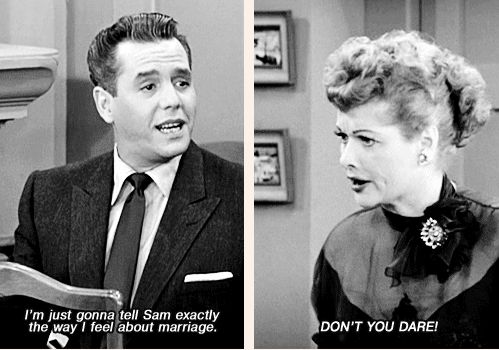
On television, Lucille Ball and Desi Arnaz made millions of viewers believe in a love filled with laughter. I Love Lucy (1951–1957) wasn’t just one of the most successful sitcoms in American TV history — it also turned their marriage into a “romantic symbol.” Yet behind the spotlight and endless laughter lay a troubled relationship marked by conflict, heartbreak, and ultimately divorce.
A Love Born on Set
Lucille Ball first met Desi Arnaz in 1940 while working together on the film Too Many Girls. From their very first meeting, Lucille was captivated by the Cuban-born musician and actor’s charm and charisma. The two quickly married and became one of Hollywood’s power couples. When I Love Lucy premiered, audiences felt they were watching a real-life love story: witty, romantic, and full of warmth.
A Marriage Under Fire
But real life was far from what fans saw on screen. Their marriage was plagued by grueling work schedules, the pressures of fame, and cultural differences. Arnaz, though gifted and ambitious, was known for his womanizing and hard-partying lifestyle. Rumors of infidelity haunted the couple, leaving Ball heartbroken. Arnaz also battled alcoholism, adding more strain to their already fragile bond.
When Screen and Reality Diverged
On I Love Lucy, Ricky Ricardo (played by Arnaz) was the doting husband, endlessly patient with Lucy’s comedic antics. Off screen, however, the cracks deepened. After 20 years together, Lucille Ball filed for divorce in 1960, ending what had once been celebrated as Hollywood’s “golden couple.”
Love After the Breakup
Even after their split, Ball and Arnaz shared a lasting connection. They continued to collaborate through Desilu Productions, the company behind some of American television’s most influential shows. When Arnaz died of lung cancer in 1986, Ball famously said: “No matter what, Desi was the love of my life.” Her words revealed that despite betrayal and heartbreak, a profound affection endured.
A Legacy Beyond the Pain
Today, audiences still remember I Love Lucy for the infectious laughter of Lucy and Ricky Ricardo. Yet the real-life story of Lucille Ball and Desi Arnaz reminds us that star-crossed love, however dazzling on screen, can be as flawed and painful as any human relationship. That contrast — between comedy on camera and turmoil behind the scenes — has only deepened the show’s legacy as a cultural icon, where art and life intertwined but never fully aligned.